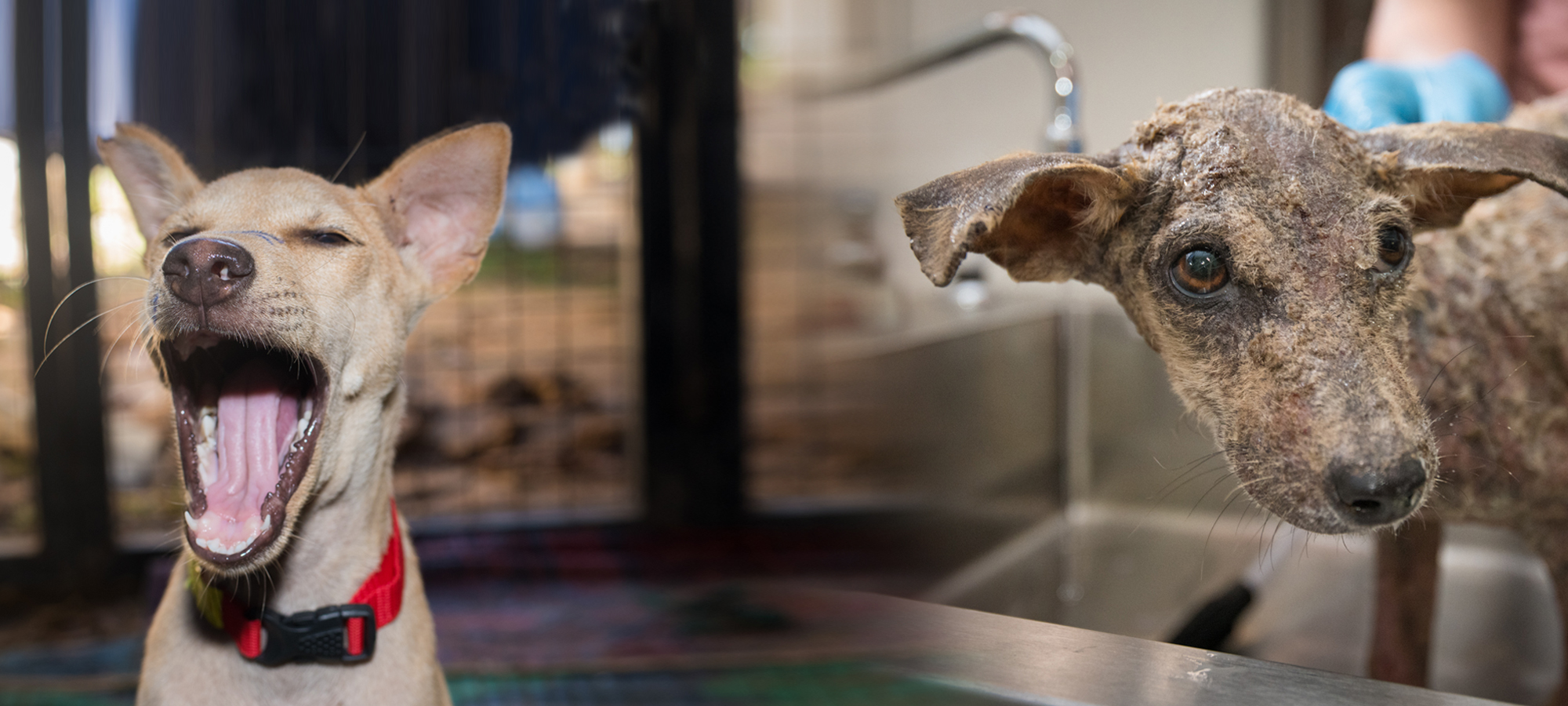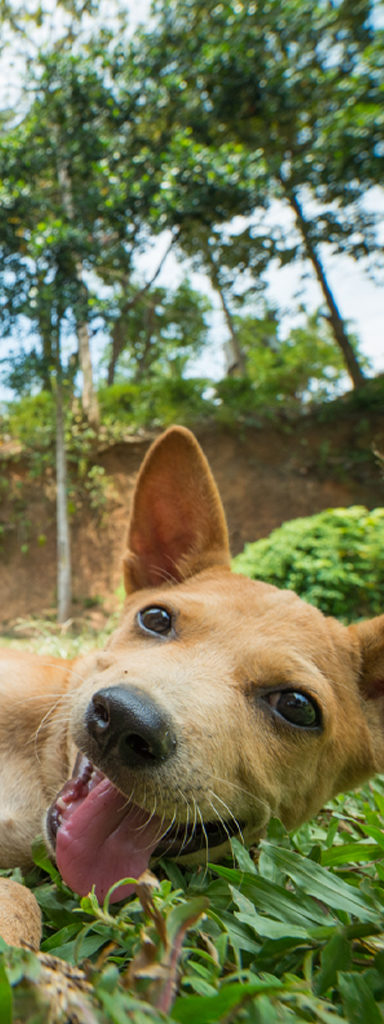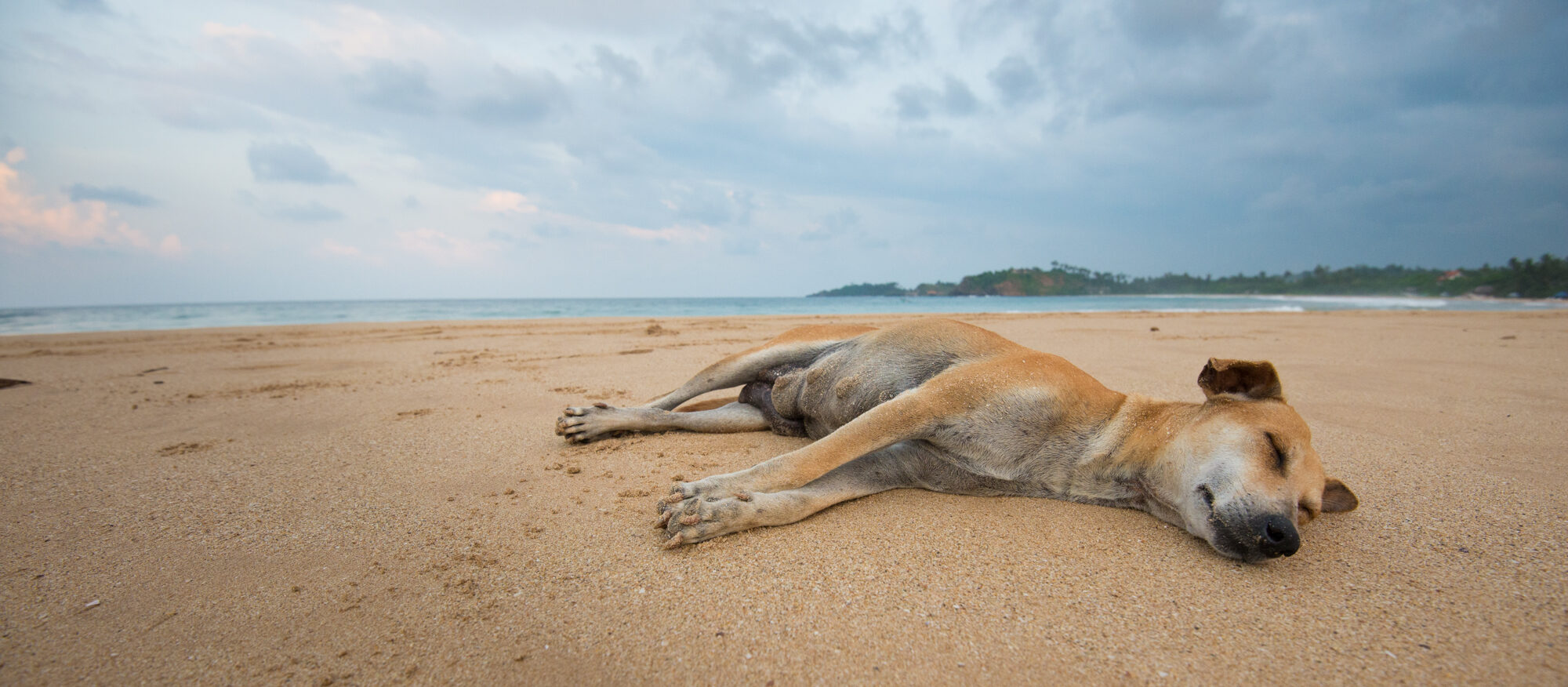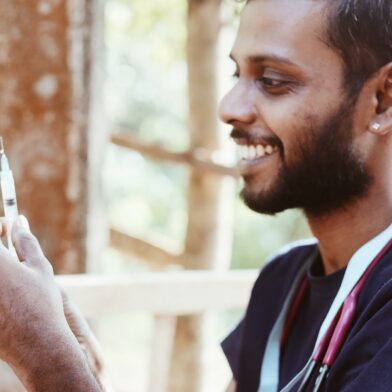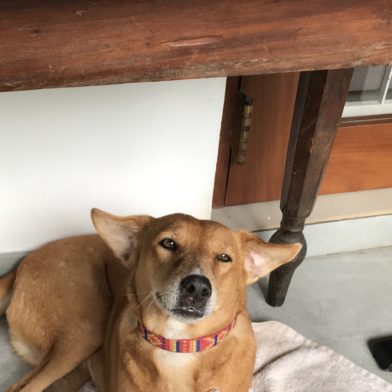
Sri Lanka is synonymous with many things – sun-soaked beaches, speeding tuk tuks, rice and curry and…dogs. Lots and lots of street dogs. An estimated 1-3 million of them, to be (the opposite of) exact – on an island 3.7 times smaller than the UK.
You’ll find dogs seeking shade under sunbeds at the beach, waiting patiently outside roti shops for their next meal, and sometimes – rather hilariously – using zebra crossings on busy roads. Street dogs are as much a part of the life and culture here as the humans – you really don’t have to look far to find one.
We understand that if you come from a country where it’s normal for dogs to share your bed, wear luxury harnesses and feast on organic food, seeing dogs living on the street can be upsetting. But the reality is that most of these dogs actually have a pretty great life – they often have human guardians, who provide food and shelter for them (food never gets wasted here in Sri Lanka – leftovers ALWAYS go to the dogs). They also have something that pet dogs in the west don’t – freedom.
Think about it – many dogs in the UK are left home alone for hours while their owners go to work, and get taken on walks when their owner chooses. Sri Lankan street dogs? They roam at leisure, visiting their mates, raiding bins, and going wherever their nose fancies.
Of course, it’s not a dream life – they’re often lacking veterinary care (which is where we come in) but rehoming them all simply isn’t a viable solution. The ‘1-3 million street dogs’ estimate doesn’t include owned dogs, so you see, in a country with a population of 20 million – many of those living in the same house, and already owning a dog/s – it would be foolish (and impossible) to try to get all those roaming dogs adopted.
It’s best to almost view the dogs as wild animals. Don’t think of them as ‘homeless’ – they have a home, it just happens to be on the street.
With that in mind, here are some tips on being a responsible tourist when it comes to Sri Lanka’s ever-growing street dog population.
Don’t take healthy puppies off the street
This is – frustratingly – something we see time and time again. Tourists come to the island without understanding the culture, and apply their western ideals to the street dog situation. Yes, it’s hard seeing tiny puppies wobbling around at the edge of a busy road, but unless the puppies are ill, we urge you to leave them where they are.
Why? Because there just aren’t enough people willing to adopt them. WECare isn’t a shelter – we see putting dogs back on the street wherever possible as the most sustainable solution to an unsolvable problem – yet we still have a number of dogs living in our garden who we haven’t been able to find homes for. And trust us, we’ve tried!
We’re constantly receiving messages from tourists asking if they can drop healthy puppies off with us, and we know it happens to other street dog organisations too. The reality is that healthy puppies are at the bottom of a very long list of priorities. Our hospital is full – even our emergency pop-up kennels – of critical patients, and we have a waiting list as long as our arm of street dogs in need.
Puppies can quietly carry deadly, infectious diseases like parvo and rabies, so they require prolonged periods of isolation to protect the rest of our patients, and this is a huge drain on our resources. If it’s a choice between admitting a dog with its leg hanging off or a litter of healthy puppies, we of course, have to choose the injured animal.
There is, of course, a risk that leaving the puppies on the street means they won’t survive, but it is possible – remember that every street dog you see today was once a puppy. Unless you have a confirmed forever home arranged for that animal, please leave it where it is.
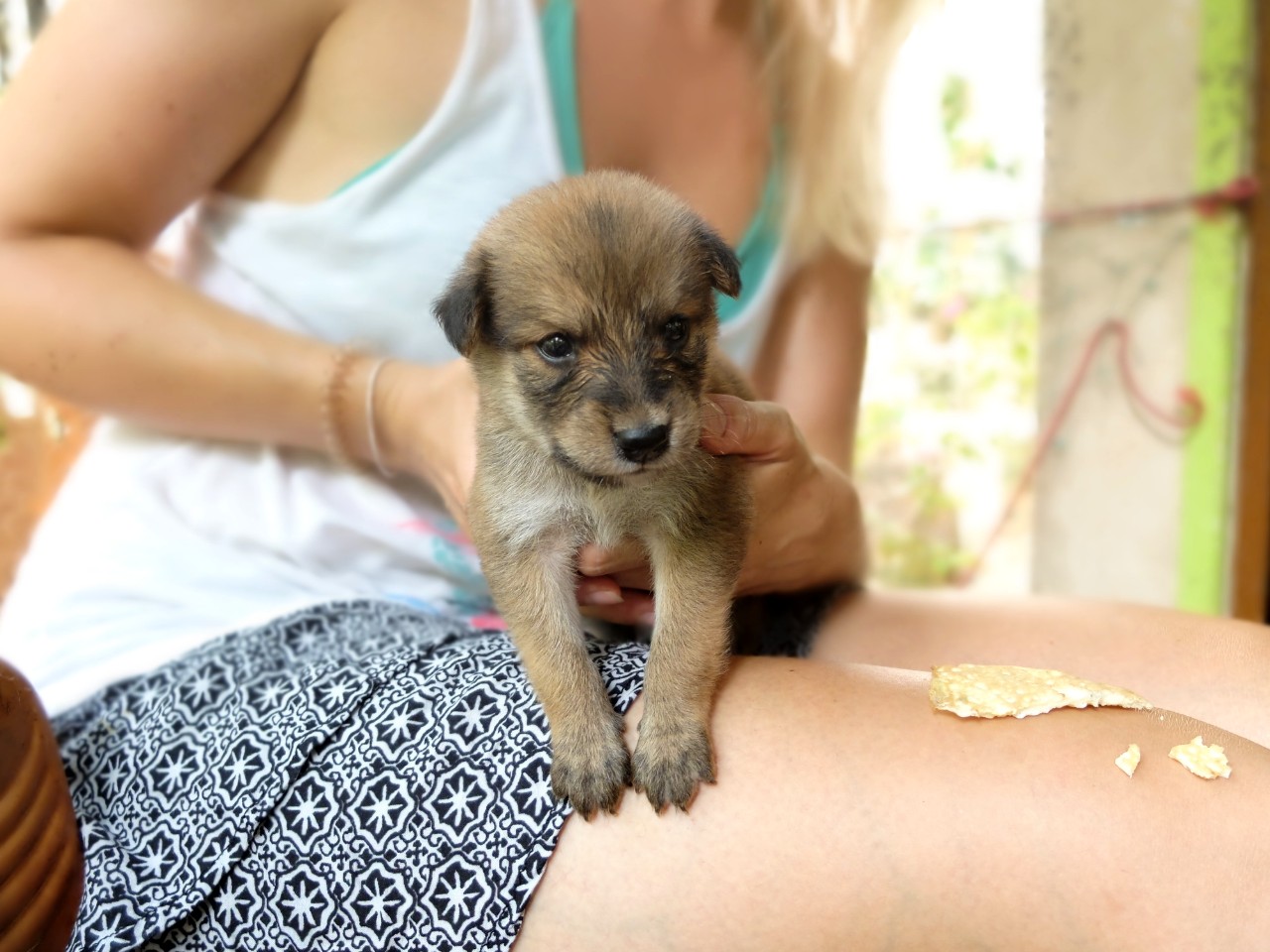
Don’t displace dogs from their territories
On a similar note, don’t use a street dog as an accessory or temporary pet for your stay, and then ditch it when you move on. Again, this is something we see all the time. What often happens is that tourists will encourage dogs to come back to their guesthouses, away from their food source and territory, and then leave, essentially dumping the animal with the guesthouse owner, making it their problem. This just isn’t fair.
It’s also not fair on the dog, who’s now been displaced from their territory, and has to fend for themselves in a new one, when they were likely very settled where they were.
Don’t become a dog’s sole food source
We understand that feeding a hungry-looking dog may seem like a kind thing to do, but dogs are creatures of habit, and if you stick around for a period of time feeding an animal, you may inadvertently become their sole food source. Why is this an issue? Well, when you leave, that dog will need to find a new food source, which may have already been taken by other dogs in the area. They’re back to square one.
It’s important that if a street dog relies on a human for food, that the food is consistent. Not just for weeks or months, but years.
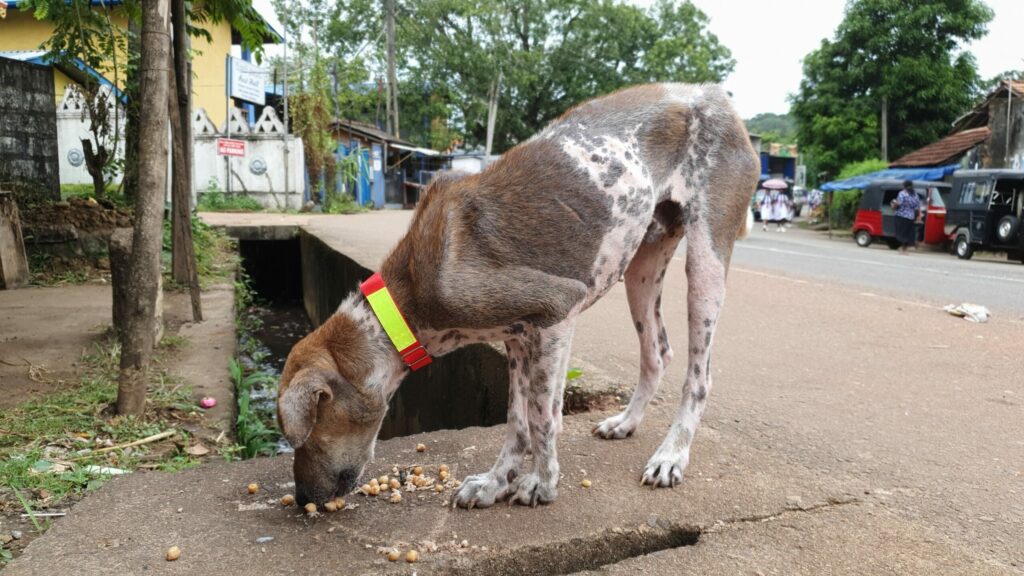
Get vaccinated against rabies before you fly
Rabies is still endemic in Sri Lanka, so it’s wise to get your jabs before you come, especially if you plan on petting lots of dogs! A pre-exposure vaccine will buy you extra time to find a post-exposure vaccine if you get bitten.
If you’re bitten by a dog in our area (Matara – Tangalle), feel free to get in touch with us as we may be able to advise if the dog has been vaccinated against rabies. If it’s wearing a red collar, it likely means it’s been vaccinated, but please contact us to confirm.
Don’t adopt/rehome a dog without speaking to locals
Many owned dogs here don’t wear collars, and that ‘street dog’ you’ve fallen in love with may actually be someone’s pet.
The dog may also be an established community dog, who’s looked after by multiple guardians, so please check with locals in the area before making plans to rehome. If you’d like to get the dog flea/tick medication, get it vaccinated/neutered or take it to the vet for other reasons, it’s best to first check with the community to see if it’s already had treatment.
Neutering is the most sustainable way of keeping the street dog population down, so if you can pay for a dog’s neuter, that would be a great help. However, again, please make sure that it isn’t an owned dog as some locals don’t agree with neutering, as it goes against their religious beliefs.
Heads up, you can tell if a dog’s already been neutered as it will have an ear tip.
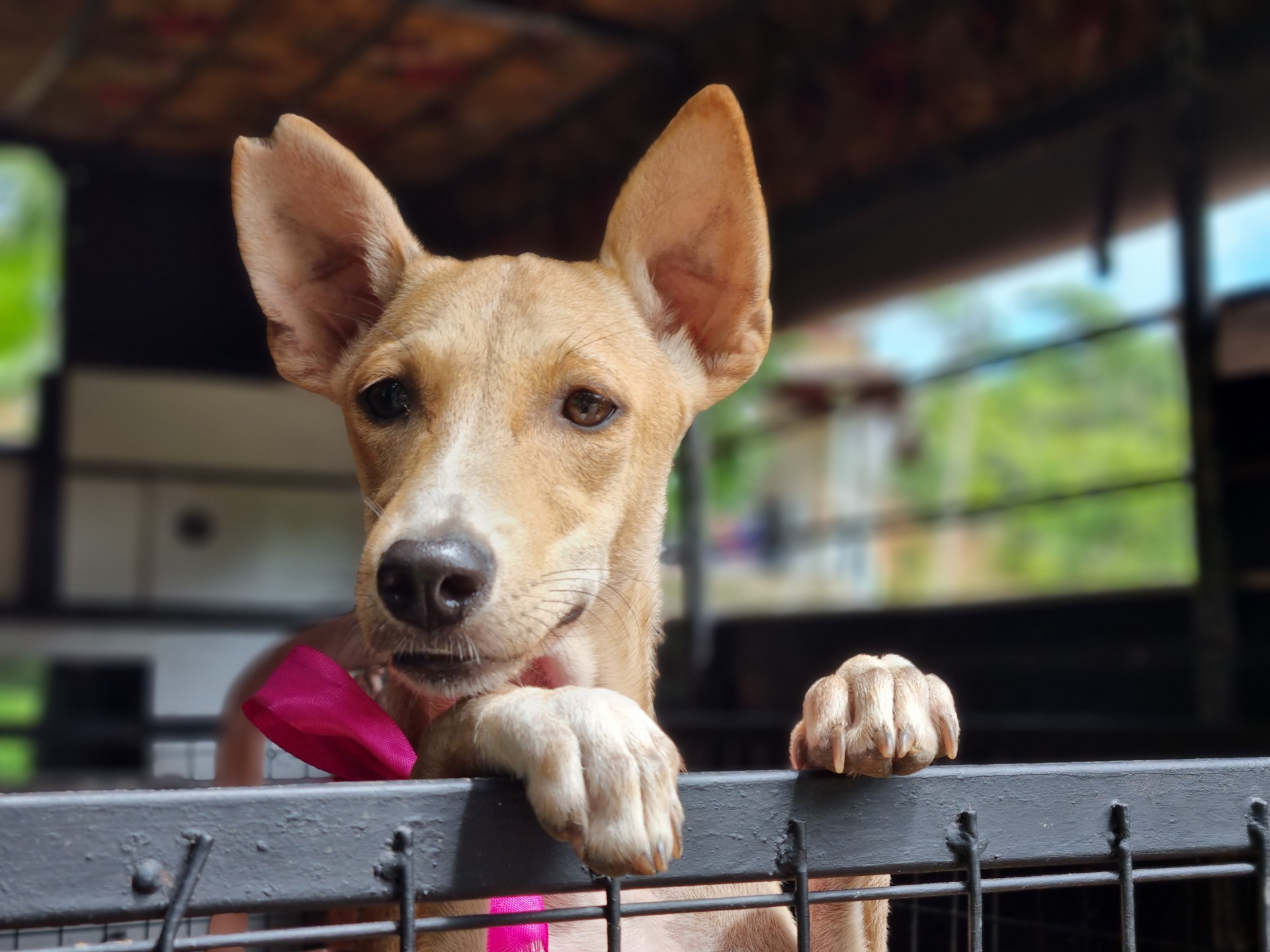
Be proactive
The first port of call for many tourists is to contact a street dog organisation as soon as they spot a dog in need, but as much as we want to help every dog, we’re all inundated (especially during high season). If the dog’s ailment is minor, it may be easier and quicker to take the dog to a local vet yourself, wherever possible. If unsure, feel free to ask us for advice.
If you do need to contact an organisation, first check which area/s they work in e.g. we’re based in the south, so contacting us about a dog in Colombo won’t be helpful for you.
WECare is based in Gandara, covering the Matara – Tangalle area.
To report a sick/injured dog, please call +94 (0) 41 2259390, or Whatsapp (message only) +94(0) 721275616, with photos, location and as much detail as possible about the animal.
Below is a list of other organisations who may be able to help, but please be aware that they may not always have the resources to:
Dogstar (Negombo)
Embark (Colombo)
Tails of Freedom (PEDIGREE DOGS ONLY. Colombo but covers islandwide, dependent on hospital space)
Dog Care Clinic (Thalpe)
Animal SOS (Midigama)
Ceylon Paws (Weligama, not always able to do rescues but worth an ask)
Dogs of Ella (Ella)
Don’t forget that all street dog organisations on the island receive zero government funding and rely on donations, so resources – both human and monetary – are limited. If you want to make a difference, giving a donation (however small) to a local charity would be a great start. Thank you for helping us help them – we really can’t do it without you.
Share this post
Go on, give it a share and spread the word about WECare to all your online pals!
Related reads
